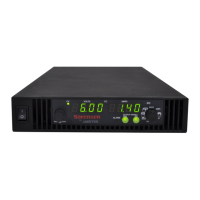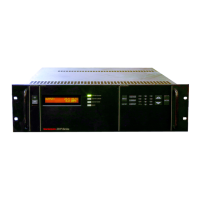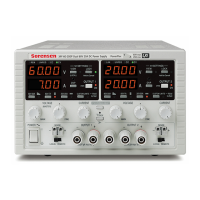Sorensen SGI Series Operation
M550221-01 Rev U 3-25
3.8.4 Sequencing
INTRODUCTION
The SGI sequencing function allows the user to set up the supply to
automatically run a series of voltage, current and power mode operations.
This is especially useful for setting up the supply to test to compliance
standards, or unburdening the test computer in automated testing
applications. Through RS-232, IEEE-488 or Ethernet, an external
computer can trigger the sequences (see SG Series Programming
Manual). Up to 50 sequences may be stored, with each sequence
containing up to 20 individual steps. With the ability to string sequences
together and an extensive list of step functions such as ramping, looping,
goto and subroutine calls, the user can define a nearly infinite variety of
test sequences.
The following sections will assist the user in programming, testing and
running a sequence from the front panel.
BASIC SEQUENCE OPERATION
To access the main Sequencing menu press F3
from Home Menu Page 1. From here any one of 50
sequences may be selected. The default names for
sequences are TESTxx where xx is a number from
01 to 50. Using SCPI commands via the RS-232,
IEEE-488, or Ethernet interface, the user may
rename these test sequences with meaningful
names of up to 15 characters (see SG Series
Programming Manual).
Note:
DO NOT use non-sequence-related SCPI commands while performing
sequence operations.
Note:
DO NOT use sequence SCPI commands as stand-alone commands
outside a sequence.
CAUTION!
RESTRICTIONS ON SEQUENCE PROGRAMMING
In order to allow maximum flexibility for generating small incremental
changes during a test sequence, the SGI allows 1 ms time resolution on
each step. With this capability, however, it is possible to create output
changes with fast slew rates, that could generate potentially damaging
large currents, in the output capacitors of the unit; refer to the guideline
note, below.
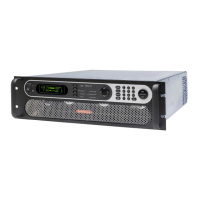
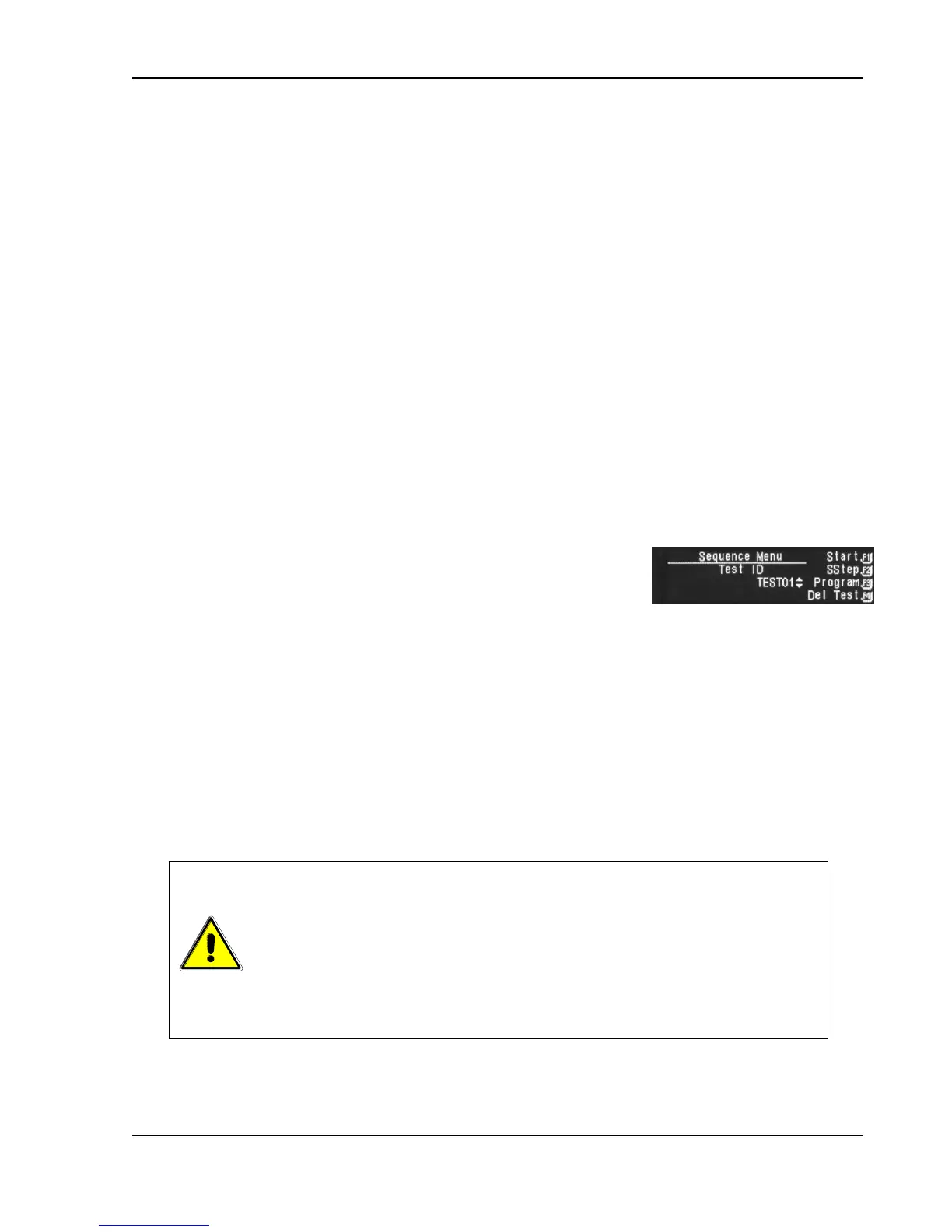